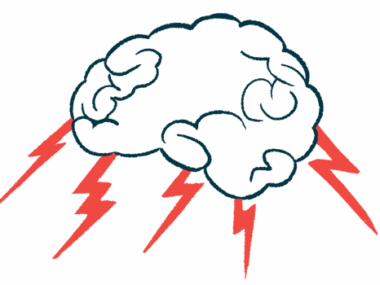Screening underway for microdose psilocybin trial in Canada
Study will evaluate safety, effectiveness of NM-1001 in fragile X patients
Written by |

Screening of potential participants has begun in a Phase 2a trial that will test Nova Mentis Life Science’s NM-1001, a microdose of the psychedelic molecule psilocybin, in adults with fragile X syndrome.
The study (NCT05832255), which is being conducted in a partnership with KGK Science, plans to enroll 10 adults, ages 18 to 50. Recruitment is ongoing at KGK’s facility in London, Ontario, Canada.
Nova and KGD, a subsidiary of Wellbeing Digital Sciences, were cleared to launch the trial this year, having already manufactured a large supply of the microdose capsules and secured permission to ship them to Canada.
“A tremendous amount of groundwork has taken place since NOVA received Health Canada approval to conduct a human trial testing the efficacy of psilocybin on adults diagnosed with fragile X,” Will Rascan, president and CEO of Nova, said in a company press release. “We are very eager to enroll our first participants in this groundbreaking study, which we anticipate will happen later in September.”
The study will be conducted throughout 2023 and preliminary findings are expected early next year.
Evaluating safety, efficacy of psilocybin microdose
The trial is designed to evaluate the safety and effectiveness of Nova’s proprietary formulation of psilocybin, the chemical in “magic mushrooms” that causes hallucinations. The very low 1.5 mg dose isn’t expected to cause hallucinations or other psychedelic effects, but may help alter brain chemistry in a way that eases fragile X symptoms. All the study’s participants will take a psilocybin capsule every other day for 28 days, or about a month.
To be eligible, participants must be able to swallow tablets and capsules, must have a participating caregiver, and must not be taking any medications that can react with psilocybin, such as antipsychotics and stimulants that treat psychiatric problems.
Participants must also ensure they don’t become pregnant during the trial. Those with certain underlying health conditions, including some heart problems, diabetes, or seizure disorders, aren’t eligible.
People who are interested in participating can fill out an online eligibility questionnaire.
The trial’s main goals are to evaluate how well patients and caregivers can adhere to study procedures, such as taking the therapy as directed, keeping a diary, and responding to questionnaires on time to collect trial data. Secondary goals include changes in various measures of behavior and cognitive function.
Changes in neuroinflammation biomarkers and in serotonin, a major brain chemical messenger whose signaling is modulated by psilocybin, will also be assessed.
More information about the trial is available on KGK’s website, and questions about the study can be directed to [email protected] or by calling 1-833-858-8359.






